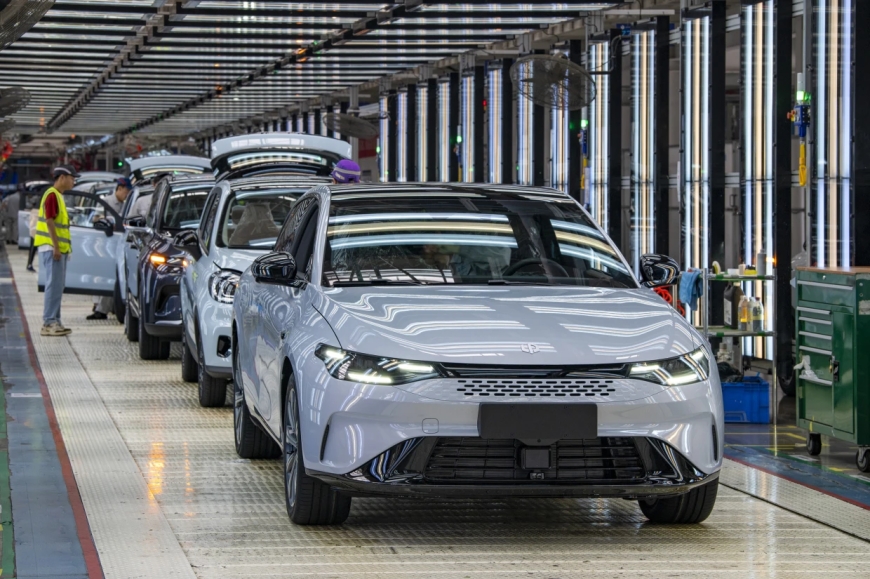European Union Imposes Tariffs Up to 38% on Chinese Electric Vehicles
The European Union announced on Wednesday it will implement higher tariffs on Chinese electric vehicle...........

The European Union announced on Wednesday it will implement higher tariffs on Chinese electric vehicle (EV) imports, citing substantial subsidies that create unfair competition and threaten the economic viability of the European EV industry.
The European Commission, the EU's executive branch, has preliminarily determined that the Chinese battery electric vehicle (BEV) sector benefits from significant subsidization. Consequently, the EU plans to impose provisional countervailing duties starting July 4 unless negotiations with Chinese authorities yield a resolution. These measures could become definitive within four months if talks fail.
Tariff Details
The new tariffs are the outcome of an investigation launched in October. BEV manufacturers who did not cooperate with the EU's probe will face a 38.1% tariff, while compliant manufacturers not "sampled" will see a 21% duty. These rates are influenced by the level of cooperation and information provided by the companies during the investigation.
Major Chinese EV manufacturer BYD has been assigned a 17.4% tariff, Geely faces a 20% duty, and SAIC has been hit with the 38.1% rate. Tesla, which operates a gigafactory in Shanghai, may receive an individually calculated tariff rate following a detailed assessment of the subsidies it has received in China.
Reactions and Implications
Valdis Dombrovskis, the EU Commissioner for Trade, stated the investigation was grounded in "facts and evidence," emphasizing ongoing discussions with Chinese authorities. However, China's Ministry of Commerce criticized the EU's decision as lacking factual and legal foundation, branding it a protectionist move that disrupts global competition and supply chains.
Nio, a prominent Chinese EV maker, responded by reaffirming its commitment to the EV market and criticizing the tariffs as counterproductive to global environmental goals and sustainable development.
Context and Global Trade Tensions
This development follows extensive debates within the EU, with countries like France advocating for higher tariffs to protect European industries, while Germany has expressed concerns over potential trade wars. German automotive executives warn that retaliatory measures from China could negatively impact European carmakers.
The EU's decision comes amid growing trade tensions with China, particularly over EVs. The EU alleges that Chinese subsidies and market practices undermine European manufacturers. The United States has taken a similar stance, recently increasing tariffs on Chinese EV imports from 25% to 100%.
China's EV market has rapidly expanded, with companies like BYD challenging global leaders such as Tesla. Chinese manufacturers are also aggressively entering Western markets, offering more affordable alternatives to local brands.
Future Developments
As the situation evolves, the EU and China will continue their negotiations, which will significantly influence the final tariff rates and their broader impact on the global automotive industry.













































